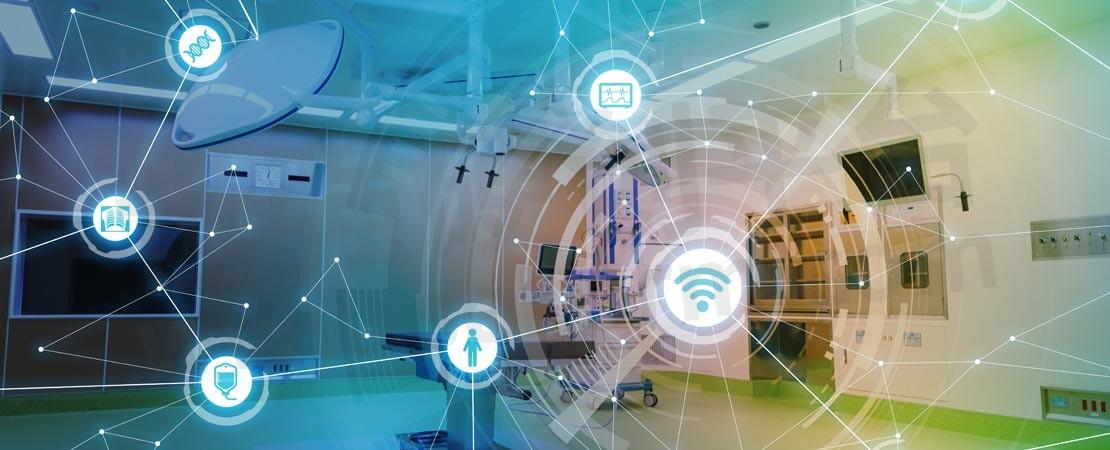Thermal Management in Artificial Intelligence

As technology continues to evolve, more companies leverage Artificial Intelligence (AI) to improve existing offerings and generate new solutions to accelerate value creation for their customers.

Rising Artificial Intelligence
Big tech industry leaders invest heavily in artificial intelligence research and development to enhance search engines, voice assistants, cloud services, and more. These companies also develop innovative AI-based solutions, such as self-driving cars, personalized healthcare, and intelligent virtual assistants.
Increasing investment in AI is driving the development of new technologies and tools, which are more accessible and affordable to businesses of all sizes, fueling the adoption of AI across industries. As artificial intelligence integrates more with daily life, the increase in processing power and bandwidth increases the need for better and more efficient cooling solutions to ensure the highest performance and reliability for these advanced systems. AI thermal management poses a challenge in the amount of cooling required and the variety of application-specific challenges each industry faces.
Latest Applications of Artificial Intelligence
Several studies and reports predict significant growth in the adoption of AI across industries. According to Fortune Business Insights, the global AI market value is expected to reach almost USD 1.4 trillion by 2029, growing at a 20.1% Compound Annual Growth Rate (CAGR) from 2022 to 2029.
Increasing AI implementation opens new possibilities for innovation and growth across various industries, such as transportation, healthcare, education, entertainment, and many others. Here are some of the latest AI applications:

Growing Artificial Intelligence Applications
eMobility and ADAS Systems
eMobility systems and self-driving cars rely on AI to operate safely and efficiently. One of the primary uses of AI in eMobility systems is to manage energy resources, like batteries and charging infrastructure. eMobility systems use AI to optimize charging and discharge cycles to maximize electric vehicle (EV) battery efficiency and lifespan, extend their range, and reduce the cost of ownership.
Self-driving cars use AI in Advanced Driver Assist Systems (ADAS) to analyze data from sensors like cameras, lidar, and radar, and to identify and track objects like other vehicles, pedestrians, and obstacles. Self-driving cars also use AI to optimize driving paths, speed, and other parameters based on traffic conditions, road geometry, and user preferences. This enables vehicles to navigate through complex scenarios and make decisions based on real-time data.
Integration of AI in the automotive industry has improved the safety and sustainability of transportation systems. Continuous advancement in AI technology enables automotive manufacturers to develop advanced eMobility and self-driving cars that are more efficient, safe, and widely adopted.

Cloud Computing
The combination of Artificial Intelligence (AI) and cloud computing has been a major driving force behind digital transformation in recent years. Cloud computing helps organizations access computing resources and storage on demand, reducing the need for expensive hardware and infrastructure. By integrating AI into the cloud, organizations leverage the capabilities of AI like machine learning and natural language processing to enhance their business operations, automate processes, and improve decision-making. For example, companies use AI-powered chatbots to interact with customers in real-time, analyze data to gain insights into customer behavior and preferences and optimize supply chain management by predicting demand.

Cloud-based AI providers offer various services like machine learning, speech recognition, image recognition, and natural language processing, making it easier for organizations to integrate AI into their operations.
Artificial Intelligence in the cloud offers scalable and cost-effective solutions, enabling businesses to expand their AI capabilities without investing in additional hardware. This is especially beneficial for small and medium-scale enterprises that may not have the resources to invest in hardware infrastructure. The combination of AI and cloud computing has the potential to revolutionize how organizations operate, making them more efficient, effective, and innovative.

Medical
The use of AI in healthcare is transforming the medical industry globally. Healthcare applies AI to improve the accuracy and speed of medical imaging, diagnose diseases, create treatment plans, speed up the drug discovery process, monitor patients, and provide real-time feedback to doctors.
For instance, medical imaging uses AI algorithms to analyze medical images like X-rays, Computed Tomography (CT) scans, and Magnetic Resonance Imaging (MRI) scans to detect abnormalities or signs of disease that may be missed by human interpretation. This helps doctors to make accurate and timely diagnoses, leading to better patient outcomes.
Artificial Intelligence also enhances drug discovery process speed by analyzing large datasets and predicting the efficacy of new drug candidates. This helps identify potential treatments more quickly and efficiently, leading to new treatments for different medical conditions.
The use of AI in healthcare is revolutionizing healthcare delivery, improving patient outcomes, reducing healthcare costs, speeding up processes, and enabling more personalized care.

Thermal Management in Artificial Intelligence
As system architects continue to integrate artificial intelligence into various industries and applications, the demand for smaller, more powerful, and energy-efficient computing devices increases. Continued AI adoption means developing more efficient software, hardware, and thermal management solutions to support these demands.
In terms of hardware, specialized processors and other components are optimized for artificial intelligence workloads. For example, graphics processing units (GPUs) have been widely adopted in the AI community due to their ability to efficiently perform the matrix operations that are fundamental to many AI algorithms. Chip designers and manufacturers are also developing AI-focused hardware to accelerate deep learning workloads.
However, each new hardware development for AI comes with an increased thermal output cost and this thermal demand has quickly outpaced traditional thermal solutions. These chips demand high power to support the increased processing demand required for AI tasks. As a result, artificial intelligence hardware generates excessive waste heat that can degrade performance or trigger system failure, which is why AI system designers rely more on thermal management solutions to manage AI processor temperature.

As AI becomes more power-hungry and complex, it’s crucial to design cooling solutions that keep up with these demands while still being efficient and reliable. Liquid cooling is a promising solution that provides much higher cooling capacity than air cooling, especially for mobile AI systems that require small form factors and low power consumption.
Customizing Thermal Management for Specific Artificial Intelligence Applications
Another important consideration in artificial intelligence cooling and thermal management is the specific application of AI and its associated thermal requirements. For example, AI systems used in self-driving cars have different cooling requirements than those used in data centers or medical devices. It is therefore essential to design cooling solutions that are tailored to the specific AI application and its use environment.
Thermal Management for eMobility Artificial Intelligence
Thermal management solutions for artificial intelligence in eMobility applications focus mostly on cooling onboard electronics and processors, especially for Advanced Driver Assist Systems. Systems that collect, organize, process, and implement sensor data to increase vehicle occupant safety rely on fast, reliable processing to make rapid, safe decisions. Cooling solutions for eMobility require the utmost reliability in a lightweight, durable format to ensure passenger safety with minimal impact on vehicle range and efficiency.
Cooling Medical and Enterprise Deep Learning and Artificial Intelligence Applications
AI solutions in hyper-scale or data center environments for either consumer or medical applications are currently transitioning from air-cooled solutions into high-performance liquid cooling, with coolant distribution units (CDUs) as the core of these next-gen thermal management systems.
The BOYD Difference
Boyd has decades of experience and expertise designing and manufacturing at-scale custom thermal management solutions like coolant distribution units, liquid loops and cold plates, chillers, 3D vapor chambers, and remote heat pipe assemblies for various industries, including eMobility, cloud, medical, and more. Our engineering and material science expertise allows us to design a tailored solution for a specific application, whether it is a cooling solution for ADAS systems, data centers, or medical equipment.
We leverage our extensive supplier network to obtain the materials and components required to design innovative solutions optimized for performance, reliability, and energy efficiency.
- +1 Like
- Add to Favorites
Recommend
- Coolant Distribution Units - Improve Cooling and Performance of Cloud, Enterprise & 5G Applications
- Designing Coolant Distribution Units (CDU) into Data Center Systems and Maintaining the Proper Operating Temperature
- Coolant Distribution Units (CDUs) That Help Lower Data Center Total Cost of Ownership and Maximize Power Density
- What Is A Coolant Distribution Unit (CDU)?
- Nidec Adds New Products including CDUs, Manifold Units and Pumps to its Lineup of Water-cooling Module
- Common Coolant Types and Their Uses in Liquid Cooling Systems
- Nidec to Expand Its Production Capacity for Water-cooling Modules
- MTA Has Designed Two Power Distribution Units for the New Mild Hybrid Models of Jaguar Land Rover Cars
This document is provided by Sekorm Platform for VIP exclusive service. The copyright is owned by Sekorm. Without authorization, any medias, websites or individual are not allowed to reprint. When authorizing the reprint, the link of www.sekorm.com must be indicated.





























































































































































































































































































































































































































































































































































































































































































































































































































































































